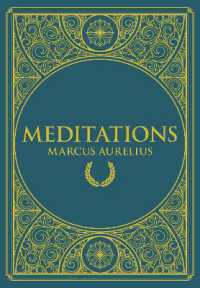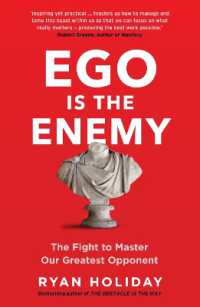Meditations: The Private Thoughts of the Philosopher Emperor
Marcus Aurelius’s Meditations stands as one of the most remarkable documents in human history - the private thoughts of the most powerful man in the ancient world, struggling to live according to the highest moral principles while bearing the weight of empire.
The Context
Written during military campaigns along the Danube frontier, these personal notes were never intended for publication. They represent the inner dialogue of a leader trying to apply Stoic philosophy to the practical challenges of governance, war, and human nature.
The Philosopher Emperor
Marcus Aurelius was unique among Roman emperors - a reluctant ruler who would have preferred a life of philosophical study but accepted the burden of leadership as his duty to the common good.
Core Stoic Principles
The Dichotomy of Control
“You have power over your mind - not outside events. Realize this, and you will find strength.”
The foundational insight that we can only control our thoughts, judgments, and actions - not external circumstances or other people’s behavior.
Memento Mori and Impermanence
Marcus frequently reflects on mortality and the transient nature of all things:
- Life is brief and uncertain
- Fame and achievements fade
- What matters is how we live each day
- Death gives urgency and meaning to our choices
Virtue as the Only True Good
The Stoic teaching that virtue (wisdom, justice, courage, and temperance) is the only thing that can never be taken from us and is the source of true happiness.
The View from Above
A mental exercise Marcus uses to maintain perspective - imagining himself from a cosmic viewpoint to see how small our daily concerns are in the grand scheme of existence.
Leadership Lessons
Duty Before Personal Preference
Despite his philosophical nature, Marcus accepted his role as emperor because it was his duty to serve the common good. This principle applies to modern leaders who must sometimes take on responsibilities they didn’t choose.
Leading with Virtue
- Make decisions based on what is right, not what is popular
- Consider the welfare of those you lead before your own
- Maintain integrity even when no one is watching
- Accept criticism and learn from mistakes
Managing Difficult People
Marcus offers timeless advice for dealing with challenging individuals:
- Understand that people act according to their own reasoning
- Don’t take others’ actions personally
- Focus on your response rather than trying to change them
- Practice patience and compassion
Practical Wisdom
Morning Reflection
“When you wake up in the morning, tell yourself: The people I deal with today will be meddling, ungrateful, arrogant, dishonest, jealous, and surly.”
This isn’t pessimism but preparation - by anticipating difficulties, we can respond with wisdom rather than react with emotion.
Evening Review
Marcus practiced examining his day:
- What did I do well?
- Where did I fall short of my principles?
- What can I learn from today’s challenges?
- How can I improve tomorrow?
Dealing with Setbacks
“The impediment to action advances action. What stands in the way becomes the way.”
This principle transforms obstacles from problems into opportunities for growth and character development.
Timeless Themes
Justice and Social Duty
Marcus emphasizes our interconnectedness and responsibility to work for the common good:
- “What brings no benefit to the hive brings none to the bee”
- Leaders exist to serve others, not themselves
- Justice is the foundation of sustainable leadership
Emotional Regulation
Practical advice for maintaining equanimity:
- Pause before reacting to strong emotions
- Question your initial judgments
- Consider alternative perspectives
- Focus on what you can control
The Inner Citadel
The concept that no external force can touch our inner freedom to choose our response to circumstances.
Modern Applications
Executive Leadership
- Make decisions based on principles, not expedience
- Maintain perspective during crises
- Take responsibility without taking things personally
- Lead by example rather than just words
Personal Development
- Start each day with intention and preparation
- End each day with reflection and learning
- Practice gratitude for what you have
- Accept what you cannot change while working to improve what you can
Crisis Management
Marcus led Rome through plague, war, and internal strife. His approach:
- Stay calm and rational under pressure
- Focus on solutions rather than problems
- Maintain hope while accepting reality
- Draw strength from adversity
The Enduring Relevance
Meditations remains relevant because it addresses the universal human challenges:
- How to live with integrity when it’s difficult
- How to lead others when you’re imperfect yourself
- How to find meaning in suffering
- How to balance personal desires with public duty
Key Practices from Meditations
Daily Discipline
- Morning preparation for the day’s challenges
- Regular self-examination
- Gratitude practice
- Philosophical reflection
Mental Models
- The view from above for perspective
- Negative visualization to appreciate what you have
- The discipline of assent to question automatic reactions
- Focus on the present moment
Marcus Aurelius shows us that philosophy isn’t abstract theory but practical wisdom for living well. His Meditations demonstrate that the highest form of leadership is self-leadership - the ongoing work of becoming the person we aspire to be.
In our modern world of constant change and pressure, Marcus’s insights provide an anchor - reminding us that while we cannot control events, we always have the power to choose our response, and in that choice lies our freedom and dignity.



